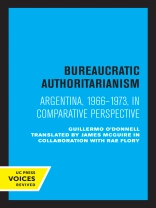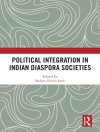Bureaucratic Authoritarianism: Argentina, 1966–1973, in Comparative Perspective provides a rigorous and multidimensional analysis of Argentina’s political and economic trajectory during a pivotal period in its history. Through the lens of the bureaucratic-authoritarian (BA) state, the book explores the complex interactions between structural conditions, institutional frameworks, and the perceptions of key actors. By situating Argentina’s experience within a comparative framework—including Brazil post-1964, Uruguay and Chile after 1973, and Argentina’s subsequent BA regime after 1976—this study offers valuable insights into the origins, dynamics, and consequences of authoritarian rule.
Combining empirical data, historical narratives, and theoretical critique, the book examines the profound social and economic costs of authoritarian governance. It interrogates the ideological and structural conditions that fostered political violence and recurrent authoritarianism, while reflecting on the enduring impact of the 1966–1973 crises on Argentina’s political evolution. Written with both academic rigor and a personal commitment to understanding Argentina’s turbulent history, this volume provides essential reading for scholars of political science, Latin American studies, and modern history.
This title is part of UC Press’s Voices Revived program, which commemorates University of California Press’s mission to seek out and cultivate the brightest minds and give them voice, reach, and impact. Drawing on a backlist dating to 1893, Voices Revived makes high-quality, peer-reviewed scholarship accessible once again using print-on-demand technology. This title was originally published in 1988.
Об авторе
Enter the Author Bio(s) here.












